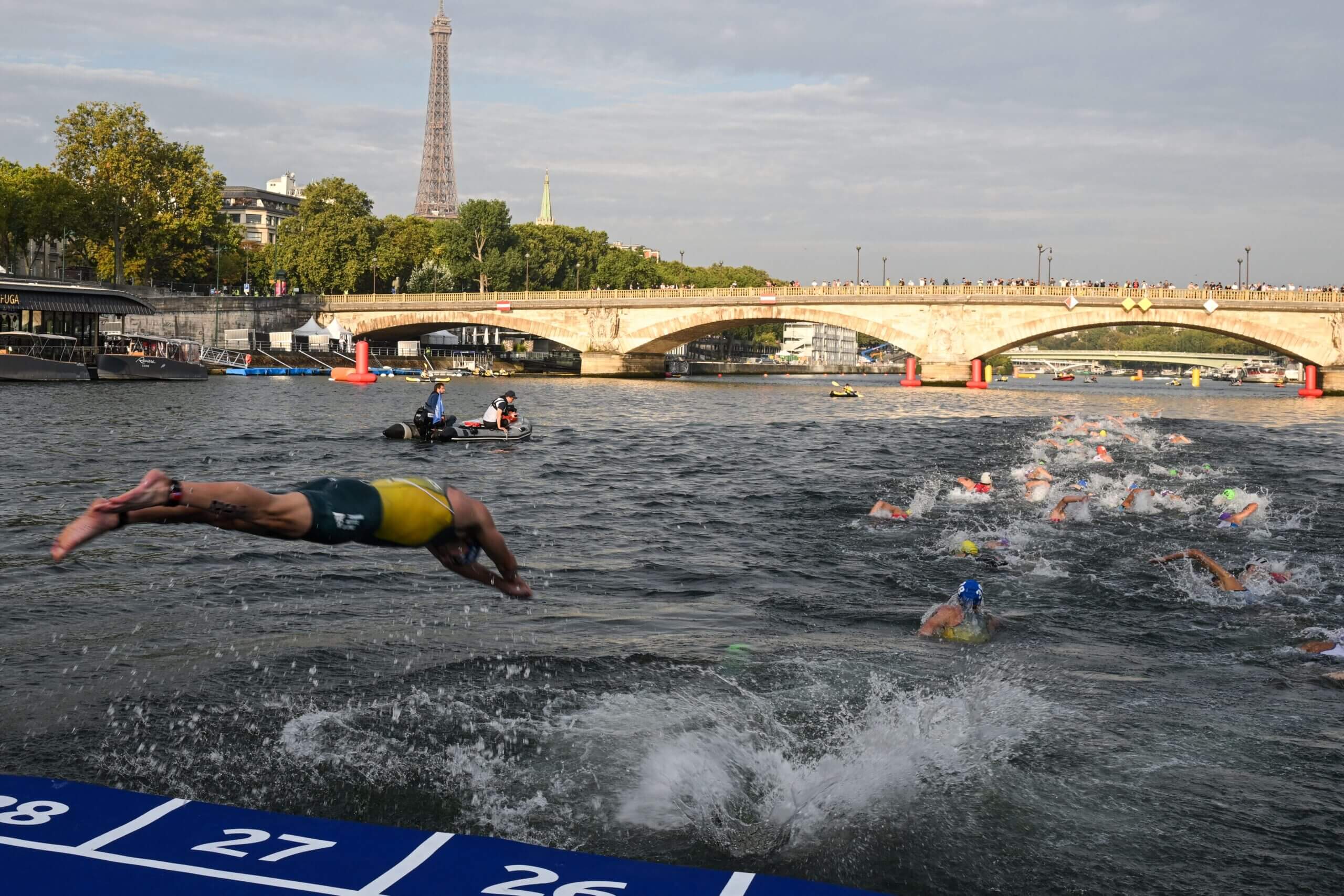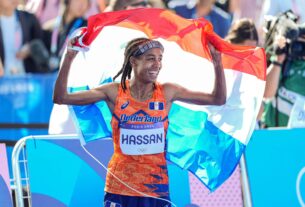Follow live coverage of day two of the 2024 Paris Olympics, including dedicated gymnastics coverage
Train hard, eat healthy, sleep well and … don’t wash your hands after using the bathroom?
American triathlete Seth Rider is preparing for the heightened E. coli levels in the Seine River with some unconventional — but, apparently, science-backed — methods.
“We know that there’s going to be some E. coli exposure, so I just try to increase my E. coli threshold by exposing myself to a bit of E. coli in your day-to-day life,” he said.
“And it’s actually backed by science. Proven methods. Just little things throughout your day, like not washing your hands after you go to the bathroom.”
Whether doctors agree with Rider or not, it’s part of his strategy to stay healthy in Paris — at the expense of not receiving any more handshakes around the athletes’ village, perhaps. The unconventional measure is a reaction to the concerns about exposure to the Seine, which is scheduled to host the swimming leg of the triathlon and marathon swimming.

Free, daily sports updates direct to your inbox.
Free, daily sports updates direct to your inbox.
Bacteria results released by the Paris mayor’s office Tuesday showed E. coli levels were just below 900 colony-forming units per 100 milliliters, a threshold set as the safe limit by the World Triathlon Federation.
There have been concerns, however, that the rainfall during Friday’s opening ceremony could cause more contaminants to flood into the river. Organizers acknowledged that Friday’s rain is likely to impact bacteria levels, potentially leading to the cancelation of Sunday’s swimming training session.
“Depending on current water quality levels and the conditions expected over the next 24 hours, it is possible that the familiarization (athlete training) scheduled for Sunday 28 July at 8 a.m. may be canceled,” Olympic organizers told Reuters, adding that a decision will be made at 4 a.m. local time Sunday.
Officials remain confident about the success of the official races, which will begin on Tuesday with the men’s individual race.
“Given the weather forecast for the next 48 hours, we expect the water quality to return to below limits within the next 24 to 36 hours,” they told Reuters.

GO DEEPER
Will the Seine be ready for Olympic swimming? With dry weather and a little luck
American triathlete Taylor Spivey said Saturday she’s hoping for a full race when she competes in the mixed-team relay on Aug. 5.
“Hopefully we get a swim, bike and run, because I don’t swim this much to just run and bike,” she said.
Spivey added she’s been upping her probiotic intake leading up to the event to “have a strong gut” and withstand sicknesses that could come from swimming in the river.
“We’re hoping that there aren’t any crazy rainstorms before,” she added. “And hopefully no sharks, like we saw in that Netflix (movie), because that would be a much bigger concern of mine.”
Spivey previously told The Athletic she’s grown familiar with swimming in “stagnant, questionable bodies of water” in her professional career.
“No one wants to get sick, but we also want to swim; after all, we train to swim, bike and run,” she said in an email. “We saw this same topic of discussion leading into both the Rio (2016) and the Tokyo Olympic Games. It’s always a concern, but it also feels like the same hype we’ve seen in the past.”
The city is hoping for sunshine and warm weather to help kill the bacteria in the river. Paris officials spent $1.5 billion to build a water tank and a network of underground sewers and treatment plants to catch sewage during rainstorms that would normally flow into the Seine.
E. coli and enterococci are contaminants that are often linked to fecal bacteria. When infected water is ingested, the bacteria can cause diarrhea, urinary tract infections, pneumonia and sepsis.
Rider’s dive into the Seine for the first leg of his race won’t be the 27-year-old’s first dip in the river. He was in Paris last summer for the Olympic test event in August 2023.
“I don’t think anyone got sick after the race,” he said. “That can’t be said about all the races we do.”
Required reading
(Photo: Bertrand Guay / AFP via Getty Images)





